Coping with COVID-19
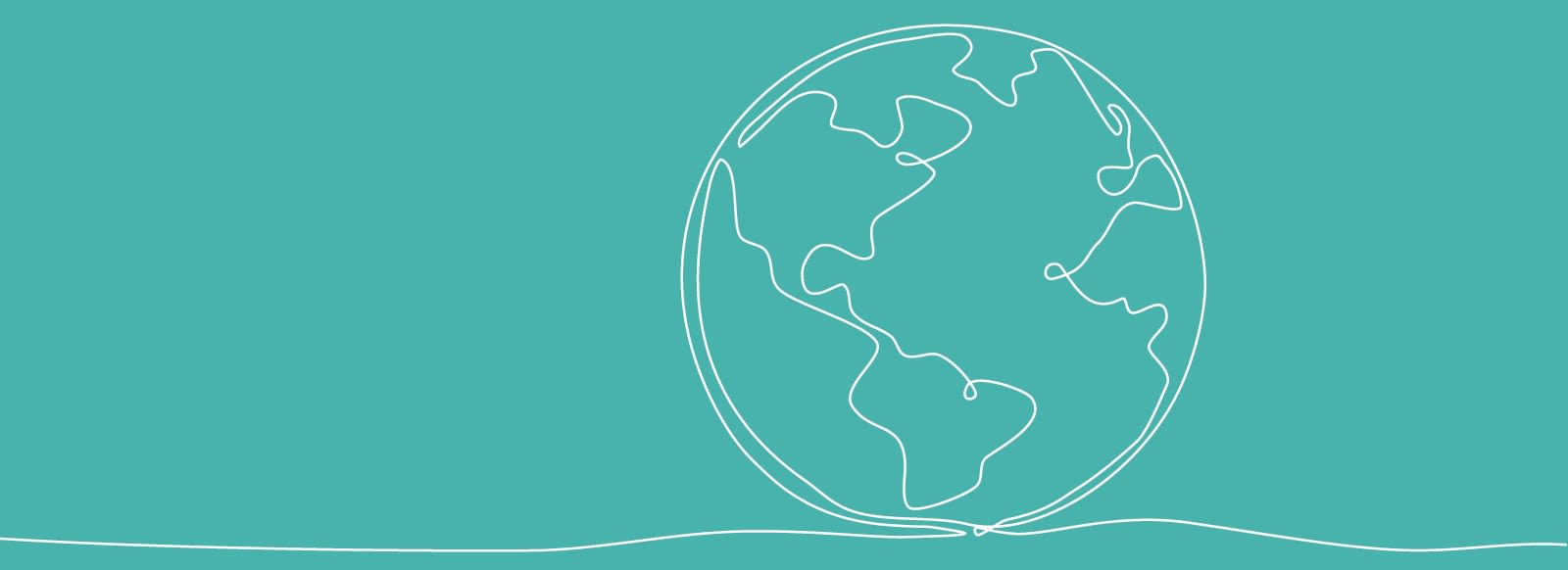
Navigating life in uncertain times.
As the world grapples with a global pandemic, and the ways we do things like study, socialise and work are challenged, it's natural to feel your stress and anxiety heightened. The good news is there are mechanisms of dealing with these feelings, understanding them and helping others along the way as well.
Stress and anxiety - coronavirus
The constant media coverage of the coronavirus, changing routines and behavioral changes in the people around us, are all the ingredients for a stress response. This function of 'survival mode' prepares us for a physical, emotional and/or mental action, keeping us on our toes, alert and anxious.
Which is why it is perfectly normal to experience more anxiety and stress in response to coronavirus. For most people the threat is uncertain, generating a constant stream of “what ifs" in their mind.
What if I contract the virus? What will happen to me? What about my family and friends? In the absence of information, our mind fills in the blanks with worry and worst case scenarios.
This environment is the perfect playground for anxiety. It feeds on “what ifs", making the most manageable and unlikely scenarios seem unmanageable and likely. Anxiety can also lead us to feel overwhelmed, vulnerable, helpless and powerless, in turn leading us into a state of inaction.
This is where you come in.
One of the best ways to beat anxiety, overcome the "what ifs" and make life feel more manageable, is in taking action. The following sections aim to put you back in the drivers seat of your mind, so you arrive back at a destination where you feel better.

Reducing exposure
Stress

Change can be stressful at the best of times. There are lots of proactive and preventative changes happening as Australia. There are also constant reminders and coverage of coronavirus in the media which can maintain a heightened state of stress.
Consider limiting your exposure to some of this information by taking time away from devices and social media. Instead seek reliable sources of information such as:

Keeping things in perspective
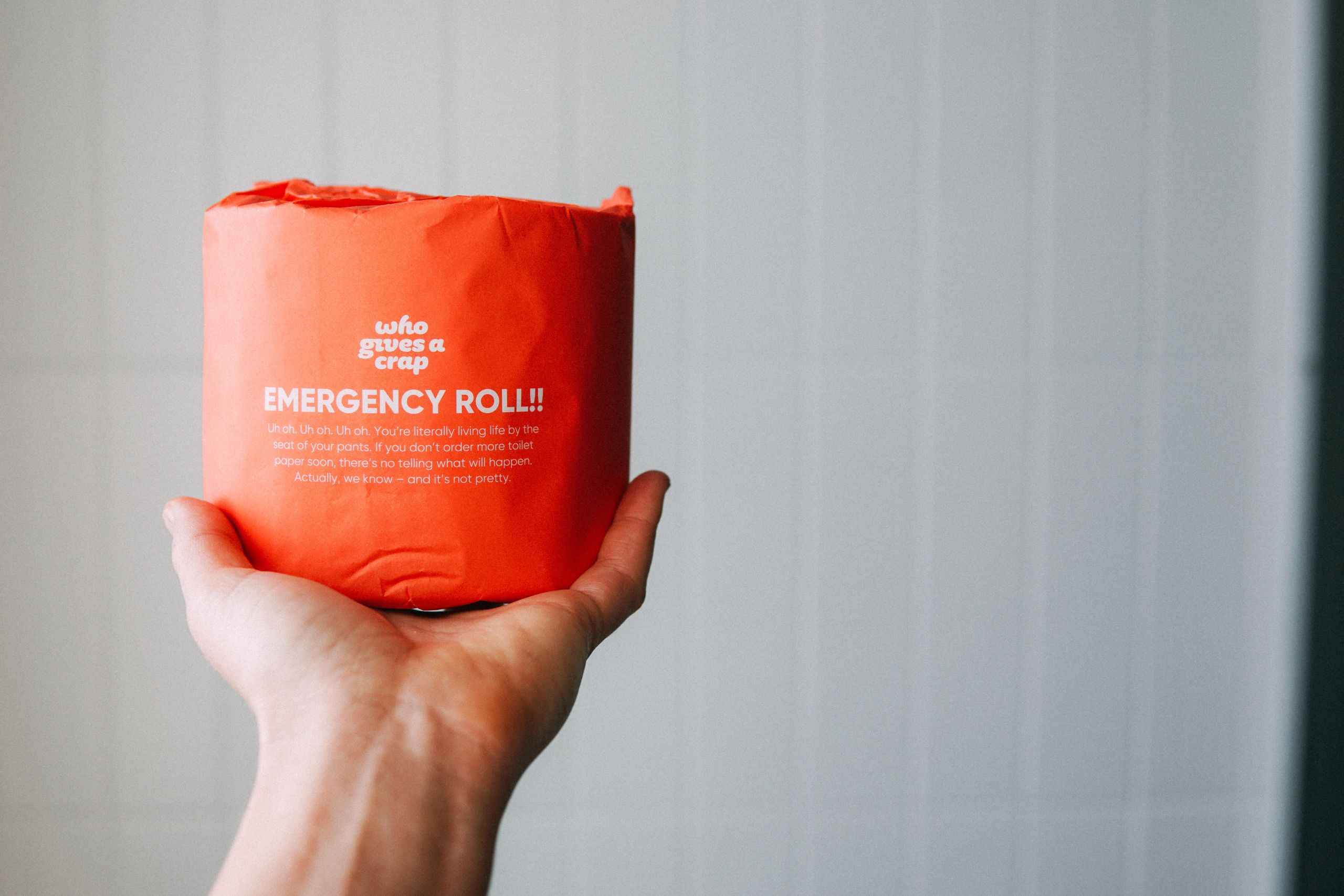

With all of the focus on coronavirus, it is easy to feel overwhelmed and helpless. Here are a few questions you can ask yourself to shift your thinking to a more helpful mind-frame:
What strategies have I used to cope with stress in the past?
We have all faced stress in our lives and we’ve successfully made it through, which is why we are still here today. What coping strategies did you use then to get by or manage when you were stressed? The more coping strategies you have, the more manageable stress can feel.
What things can I control?
Thinking about some small things you can control and putting things into action can help you feel more resilient.
Am I overestimating how bad things are?
Be sure to check the Australian Government website. The general media is likely to focus on extreme cases or areas where the virus has had the greatest impact, so these are not the best source of information. Physical distancing strategies, although disconcerting, are designed to lower the demand on medical services so that high quality support is available to those who need it, when they need it.
Am I only thinking about the worst-case scenario? What are other scenarios that are more likely to occur?
It is important to remind yourself that there are only a few cases of coronavirus in Australia compared to the total population of people in Australia. For a vast majority of those who might catch it, symptoms are likely to be minimal or even non-existent. There are groups of individuals that are more likely to experience more significant symptoms such as those in older age brackets (increasingly from 50+) and those with cardiovascular or immune system conditions. Even in these groups, our medical system is set up to support individuals, so most cases are expected to make a full recovery.
How will I think back on this in 1/5/10 years from now?
This is a technique called temporal distancing. In the moment it is easy to feel trapped by a flood of emotions, but temporal distancing can help you to step back and look at the broader picture.
What am I focusing on?
Are your thoughts and feelings based on fear, the unknown and aspects that you can't control? Shifting emphasis from fear, restriction, avoidance and the negatives to safety, gratitude, action and other positives can have a big impact on wellbeing. This is not a "just think positive" approach but instead is about shifting small parts of our focus and/or reframing our thinking to acknowledge our own gratitude and resilience.
When shopping, look for acts of consideration and kindness rather than focusing on people who are acting from fear.
When feeling frustration because you aren't able to do something, instead think of this as a sign of what you enjoy and value. For example:
- "I have a safe place to spend time" vs. "I'm stuck at home"
- "I have friends that I look forward to seeing in person again" vs. "I can't go and see my friends"
Shift fear based thinking to action based thoughts. For example
- "I am preventing the spread" rather than "I am afraid of catching COVID-19".
- "I will use physical distancing strategies and wash my hands frequently to reduce my chance of getting sick" vs. "I will get sick" or "I will die from this"
- "While I can't control the situation around me, I can control my actions to look after myself and reduce risk" vs. "Everything is out of control and there is too much uncertainty right now"
Another reframing strategy you can try
Remind yourself that you are not alone and that we are all facing this together. COVID-19 is impacting everyone, everywhere. Changes in lifestyle, habits, productivity, concentration and our experience of emotions, are a normal response to our stress, related to COVID-19. In psychobabble this is called normalising and helps us to realise that although our experience is unique, it is also an experience shared by many people around us. If you want to better understand how factors specific to you are influencing your experience, a counsellor can help you work through this.
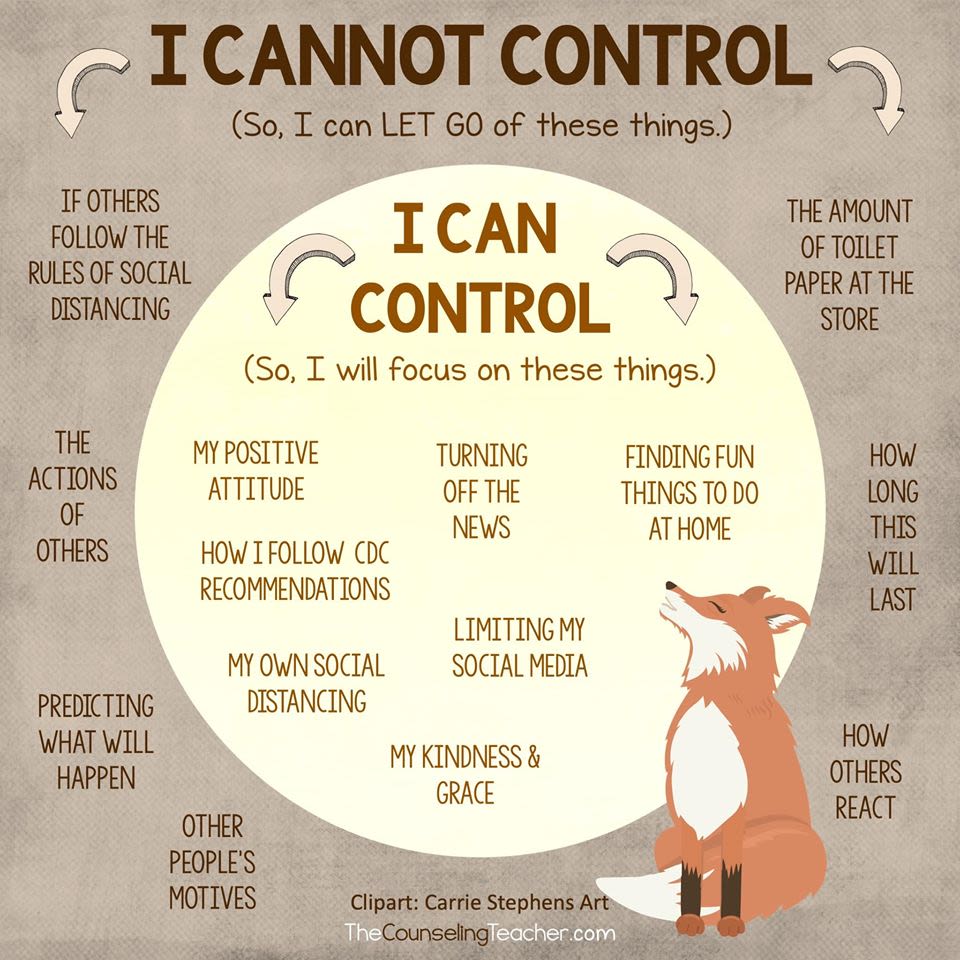
FACE COVID – How to respond effectively to the corona crisis
In this brief animation, Dr Russ Harris, illustrates how to use ACT (Acceptance and Commitment Therapy) to deal with the corona crisis and the fear, anxiety and worry that goes with it.
5 min video: Responding effectively to the corona crisis
If you find this approach helpful, you can learn more here.
Self-Care and COVID-19 Webinar
In this webinar, members of the university counselling team discuss the initial impact of COVID-19, including managing anxiety and maintaining motivation and routine.
Coping in a Changing World Webinar
In this follow-up webinar, members of the counselling team discuss COVID-19 a few months on (July 2020) and examine how we can manage fatigue and thrive in difficult and evolving times. Select the purple button on the lower right to open up the chat box for the webinar.
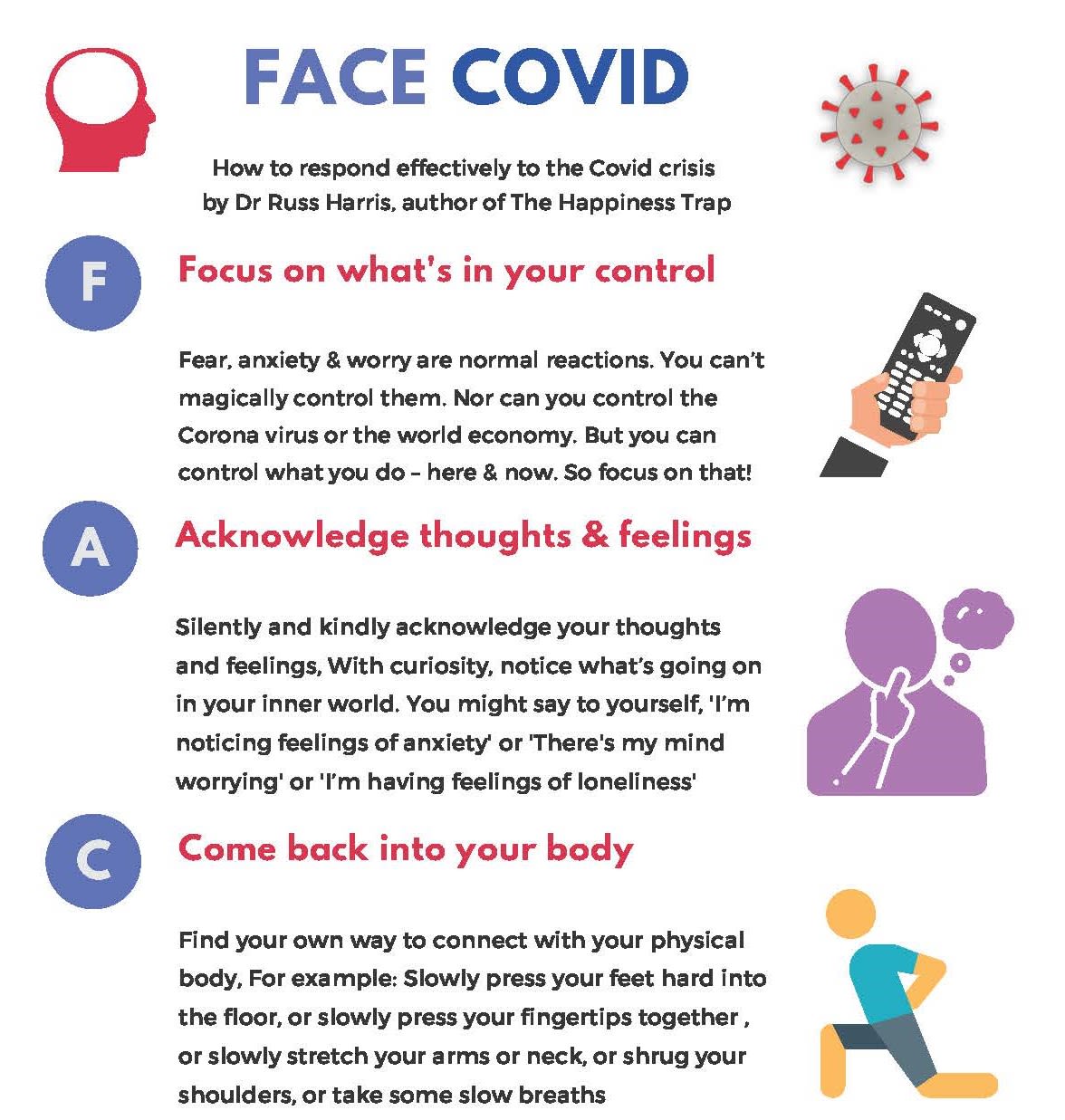
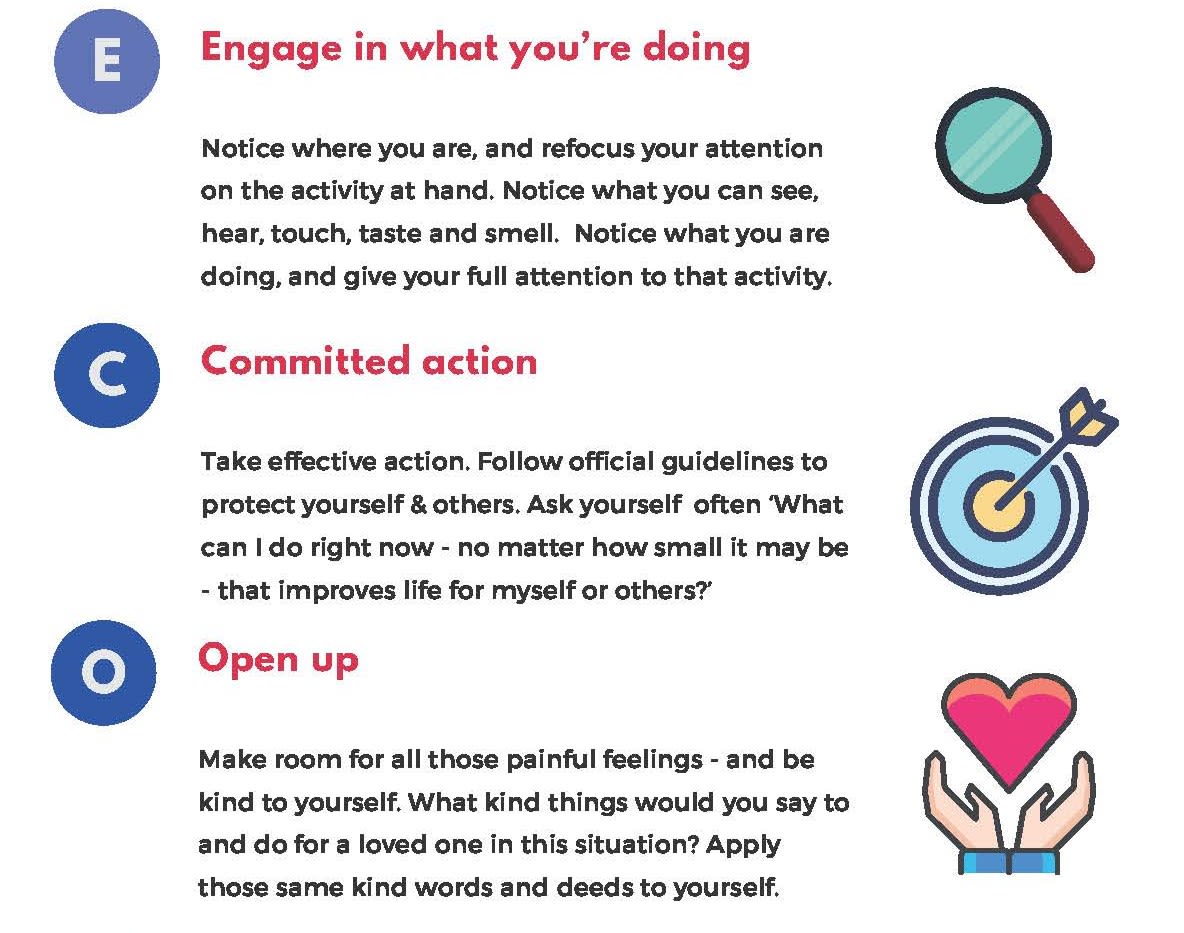
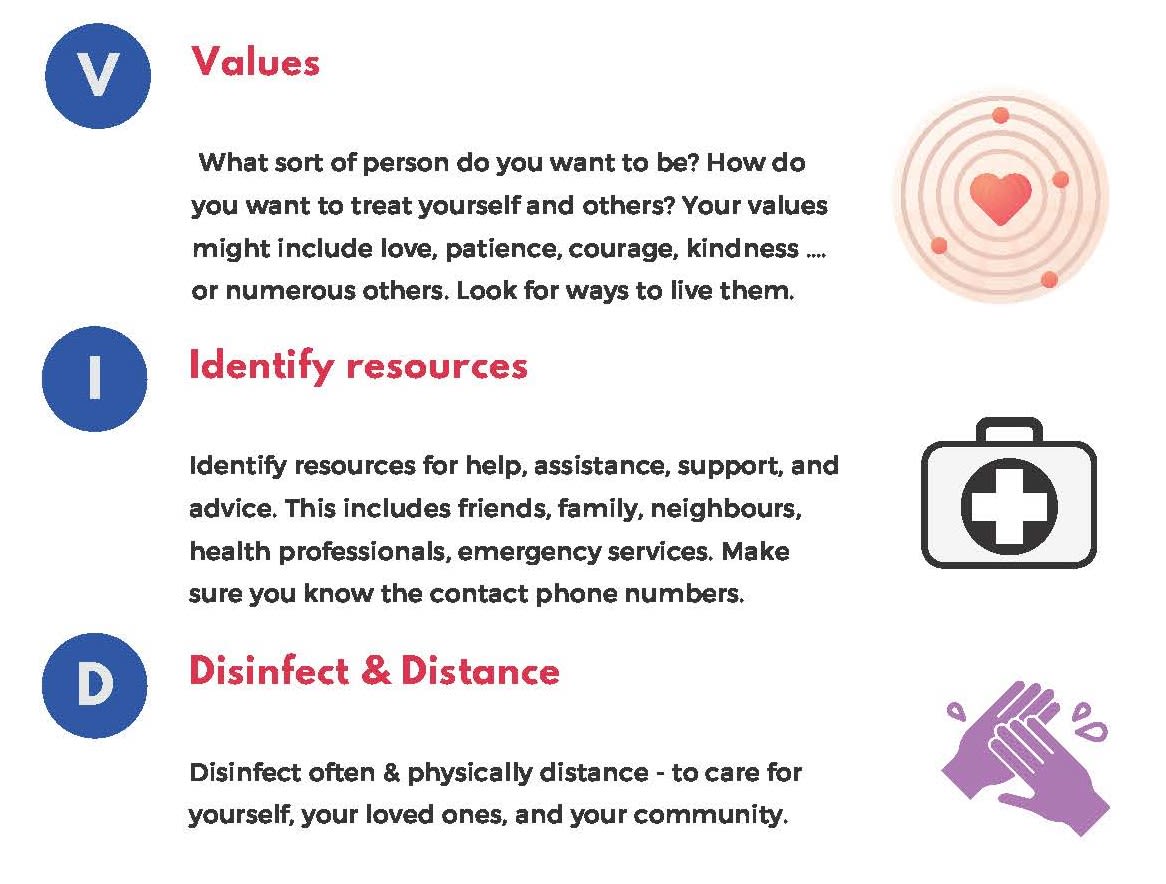
Sticking to a routine
For some people, working from home and connecting from a distance is a big change to how things have been done. It is easy to slip out of a routine without some of the external cues that have been around to guide us.
Sleep: Going to sleep and getting up at a reasonable and regular time will not only make you feel more refreshed and rested, but it can help you to feel more resilient and able to cope.
Hygiene: Although those pajama pants are comfortable, showering and putting day clothes on can help you get into the right frame of mind to work and study.
Meals: Eating regular healthy and varied meals each day breaks up sedentary activity such as study or work, and can help you track time.
Exercise: Although physical distancing may impact gyms and sports, it is still important to take time every day to do some physical activity. Physical activity adds variety to your day and can help you to manage strong emotion, ease pain and improve sleep.
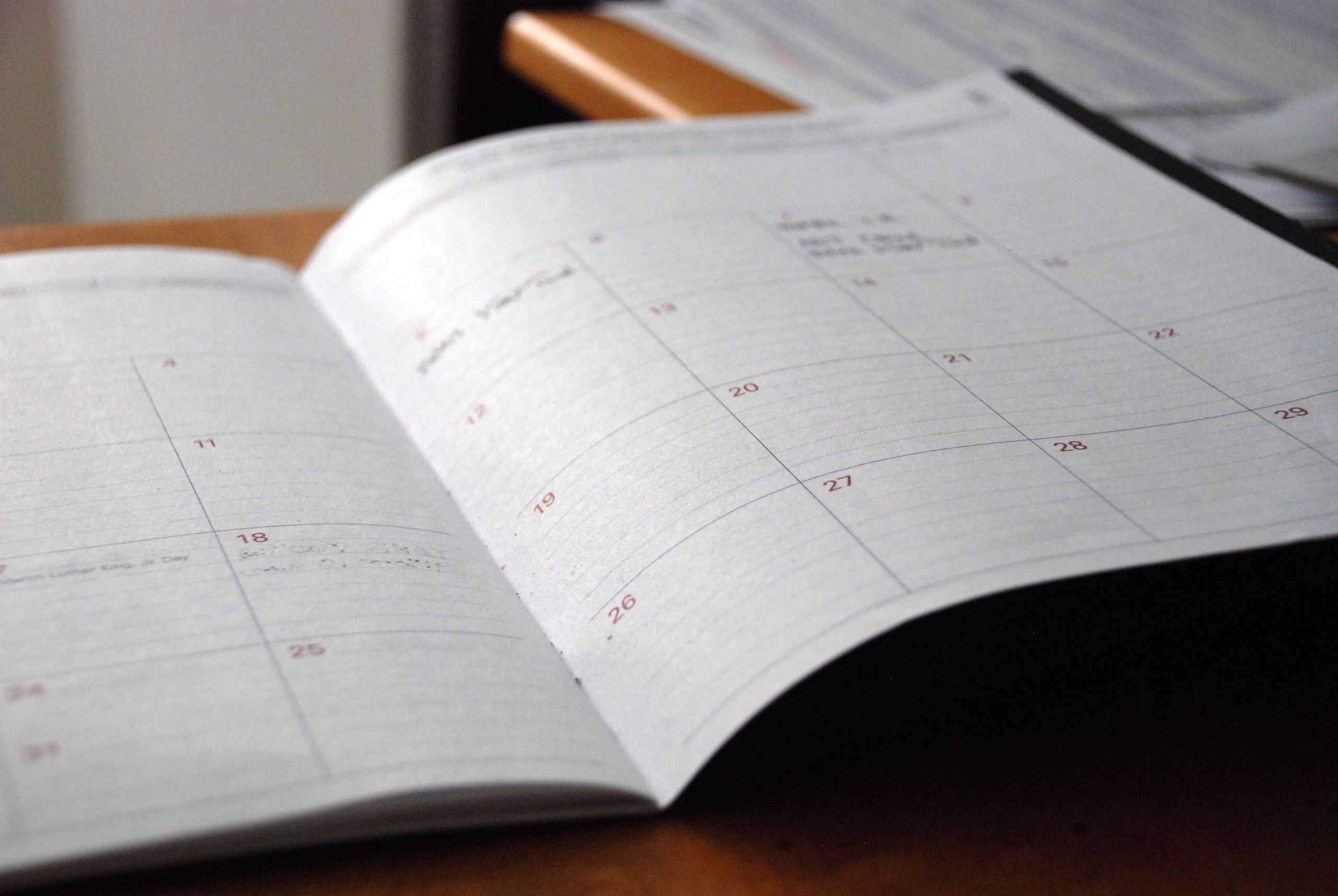
Staying Active
Being physically active improves physical health and can improve mood and wellbeing. Although you might not be able to go to the gym, there are other ways to get exercise. Here are some examples of things you can do to stay active:
- Go for a walk or run
- Increase your incidental exercise: Take the stairs rather than the elevator or escalator, park further away when heading out, get off the bus stop one stop earlier.
- Search YouTube videos to get ideas for at-home exercises and do exercise classes from home. Dance schools and exercise instructors are also making lessons freely available online.
- Get up and move around. Try moving for every 30 minutes of sitting. Even if you are just walking to grab a glass of water, go to the bathroom or do a lap of the house.
- Join an online workout group.
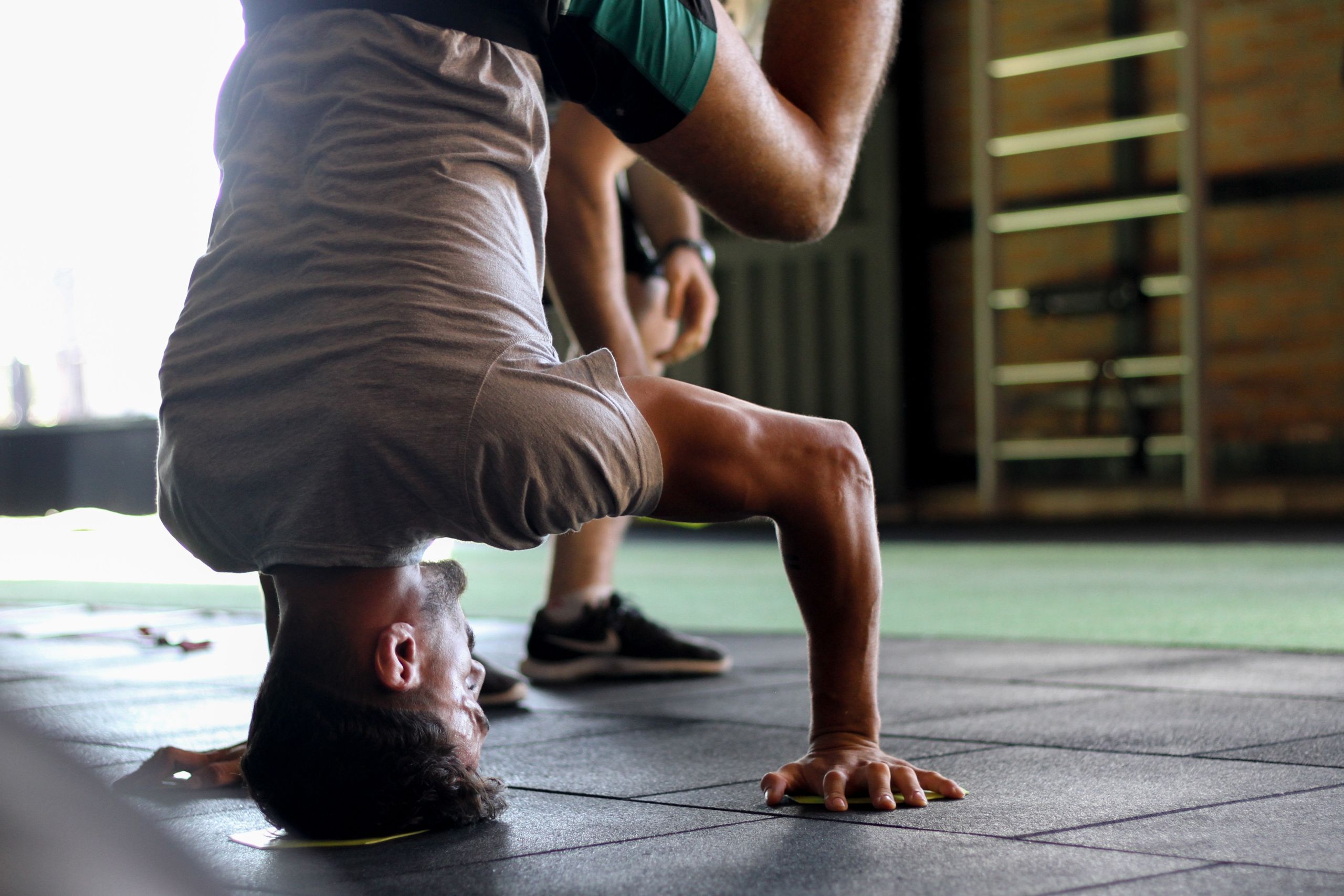
Staying connected
Feeling close to and valued by others, and strengthening relationships with the people in our lives such as friends, family, neighbours and work colleagues is important in boosting wellbeing. Physical distancing changes the way we connect with others, but there are still things you can do to nourish your connections:
- Instead of texting or emailing, call someone on the phone or over video using programs such as Zoom and Skype.
- Nourish relationships you already have by taking time to find out what is going on in the lives of those you care about.
- If you see neighbours in the street, ask how they are going or if they need anything.
- Connect to local interest, hobby or support groups in your community through social media. For example, the UTASLife Facebook page is a way to connect with the university community. BeyondBlue has online forums where you can chat with others and share ideas of self-care.
- Write a handwritten letter to a friend or relative and send it.
- If you live with others, ask them how they are going and spend 5 minutes focused just on listening to them.
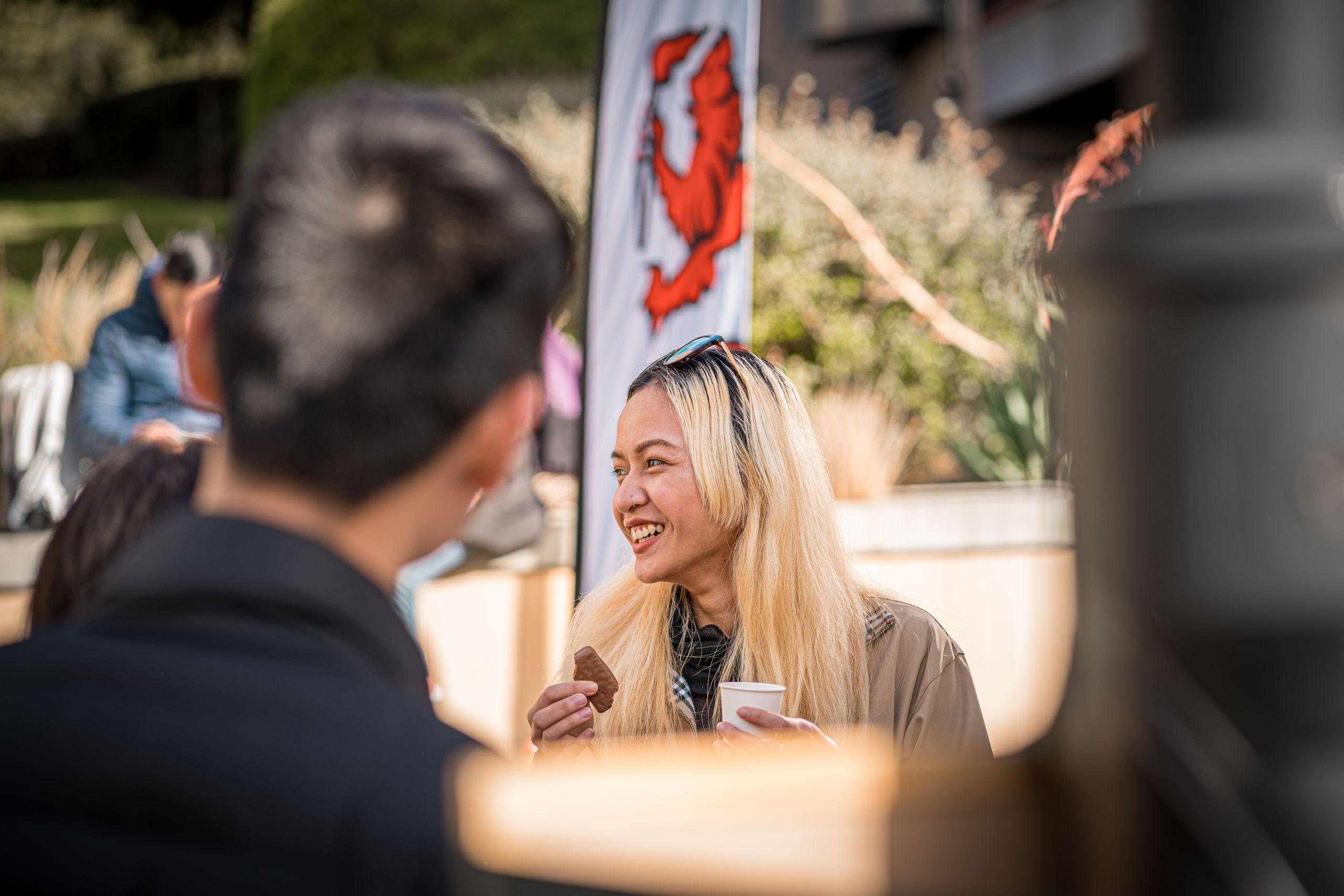
Take notice
We live in a fast-paced world. If we are feeling stressed and anxious we can also spend a lot of time in our head worrying about the future. Paying attention to the present moment, to the world around us as well as our internal world, such as thoughts and feelings can help boost wellbeing.
· Take 5 minutes just to sit and notice the sounds, smells, sights around you
· Join a virtual/online mindfulness session
· Do a virtual museum tour
· Draw what you can see around you

Keep learning
Being curious and seeking out new experiences and knowledge helps to stimulate the brain, keeping you mentally active. Although it is easy to think about all the activities we might not be able to do at the moment, it can be good to identify all the activities we still are able to do, and those we have even more opportunity to do if we are home more often.
- Focus on your studies, enrol in a free online short course, or watch a TED Talk
- Read a book (libraries have eBooks, eMagazines and audio books available for download) or listen to a podcast
- Try something new such as a new hobby or skill, e.g. cook a new recipe, play an instrument, learn a language, learn how to knit, develop your gardening skills
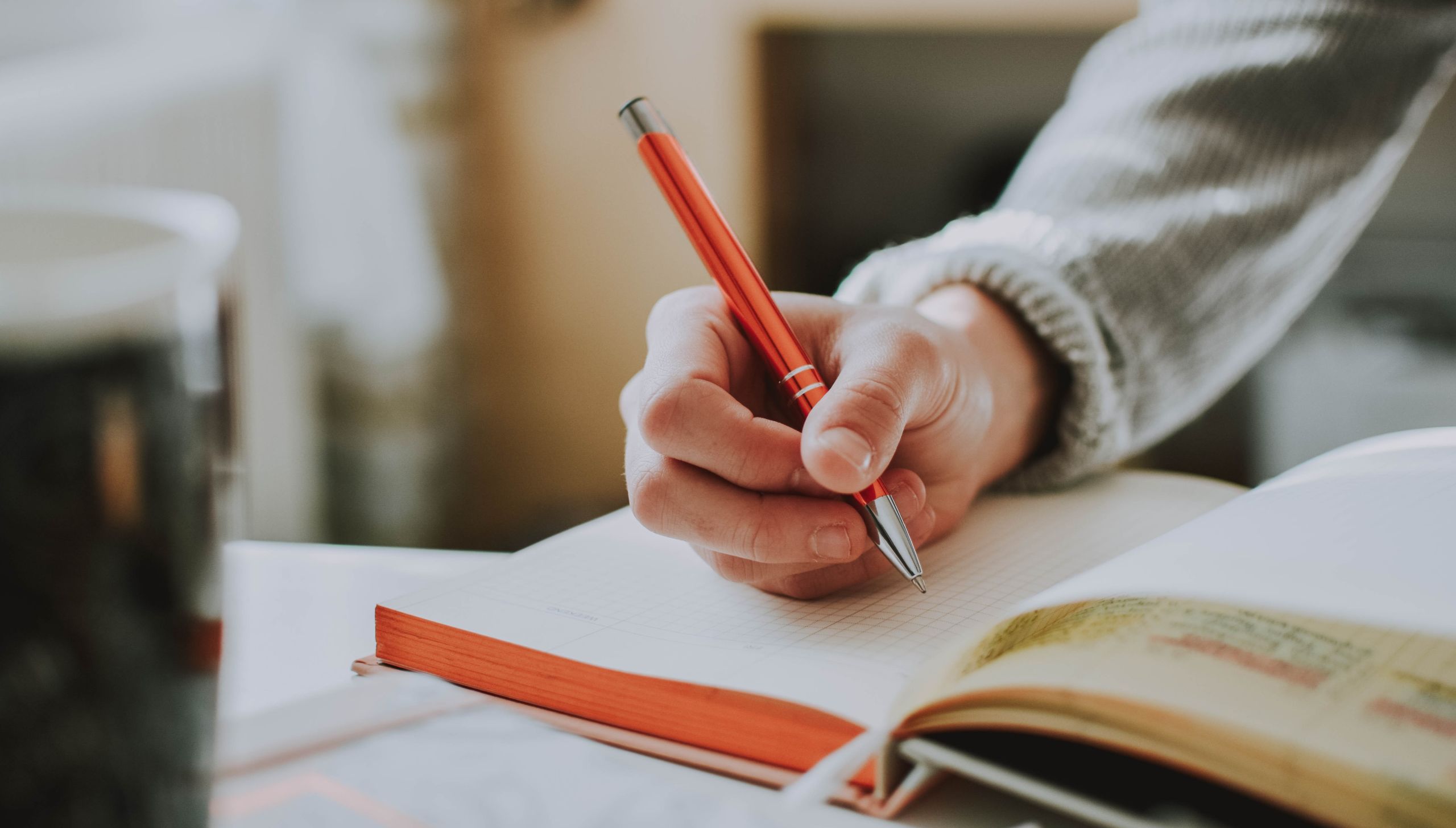
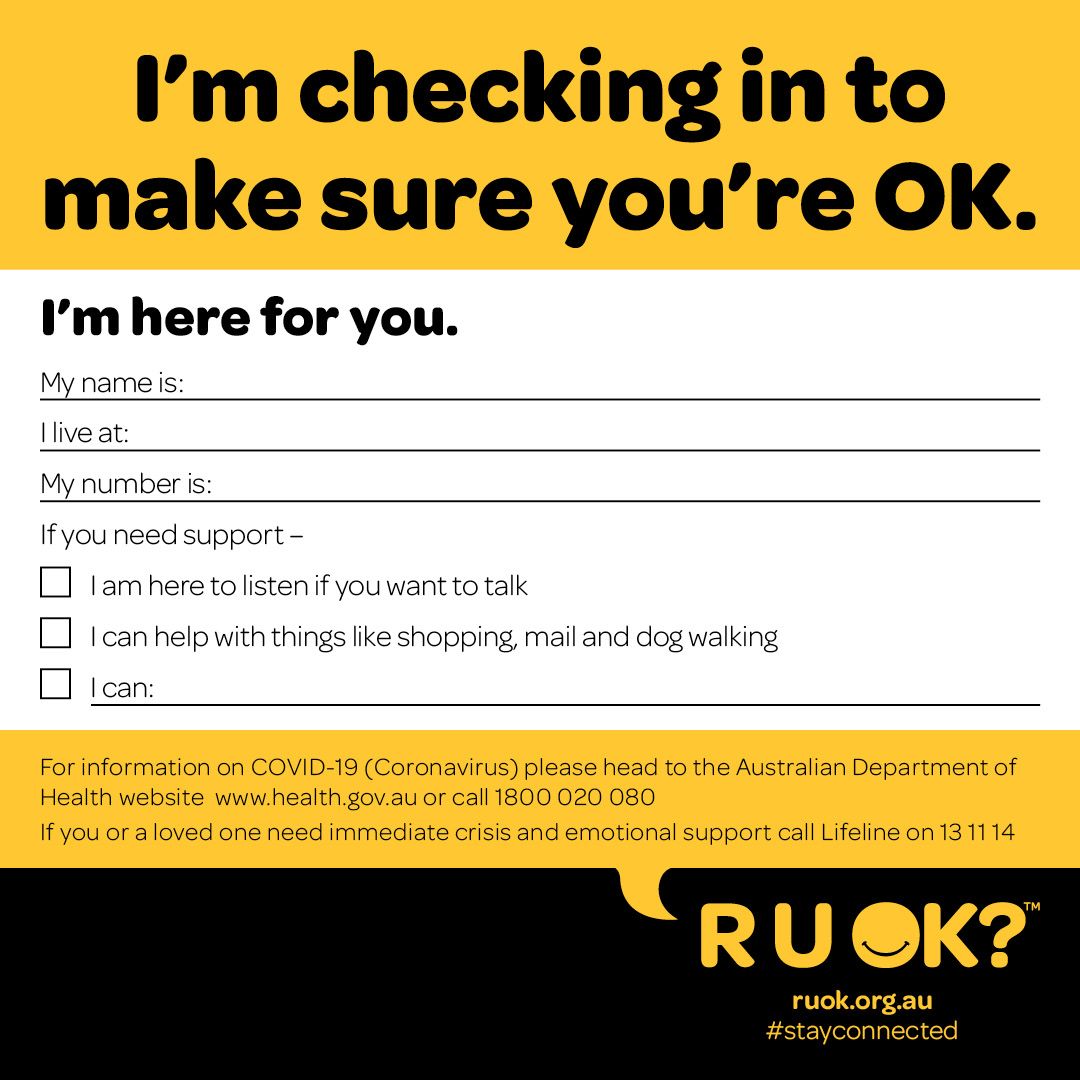
Give
Carrying out acts of kindness or altruistic behaviour has been linked to life satisfaction, a sense of purpose and meaning, and a general sense of wellbeing. In times of stress, acts of kindness can be even more important for the mental health of ourselves and those around us.
- Identify small gestures you can make for friends and family
- Social media initiatives such as Adopt a Healthcare Worker offer opportunities to connect and support others in the community
- Volunteering can offer other opportunities to give back and connect.

Reducing physical exposure - precautions
There are simple hygiene measures that you can do that will drastically lower your risk of contracting coronavirus:
- Wash hands frequently with soap for 30 seconds, or if not available use alcohol-based hand sanitiser.
- Avoid touching your face, especially your nose, mouth and eyes.
- Avoid close contact with others, especially those who are experiencing symptoms of cold or flu.
- If you feel unwell stay at home until you fully recover.
If you have fever or cough and are concerned you have coronavirus call the national (1800 020 222) or state hotline (Tas: 1800 671 738) or call ahead to your doctor and tell them about your symptoms.
If you experience trouble breathing seek medical attention immediately by calling ‘000’. Make sure to let them know if you have had any other symptoms, especially fever and cough, as well as any known interactions with confirmed cases of coronavirus.
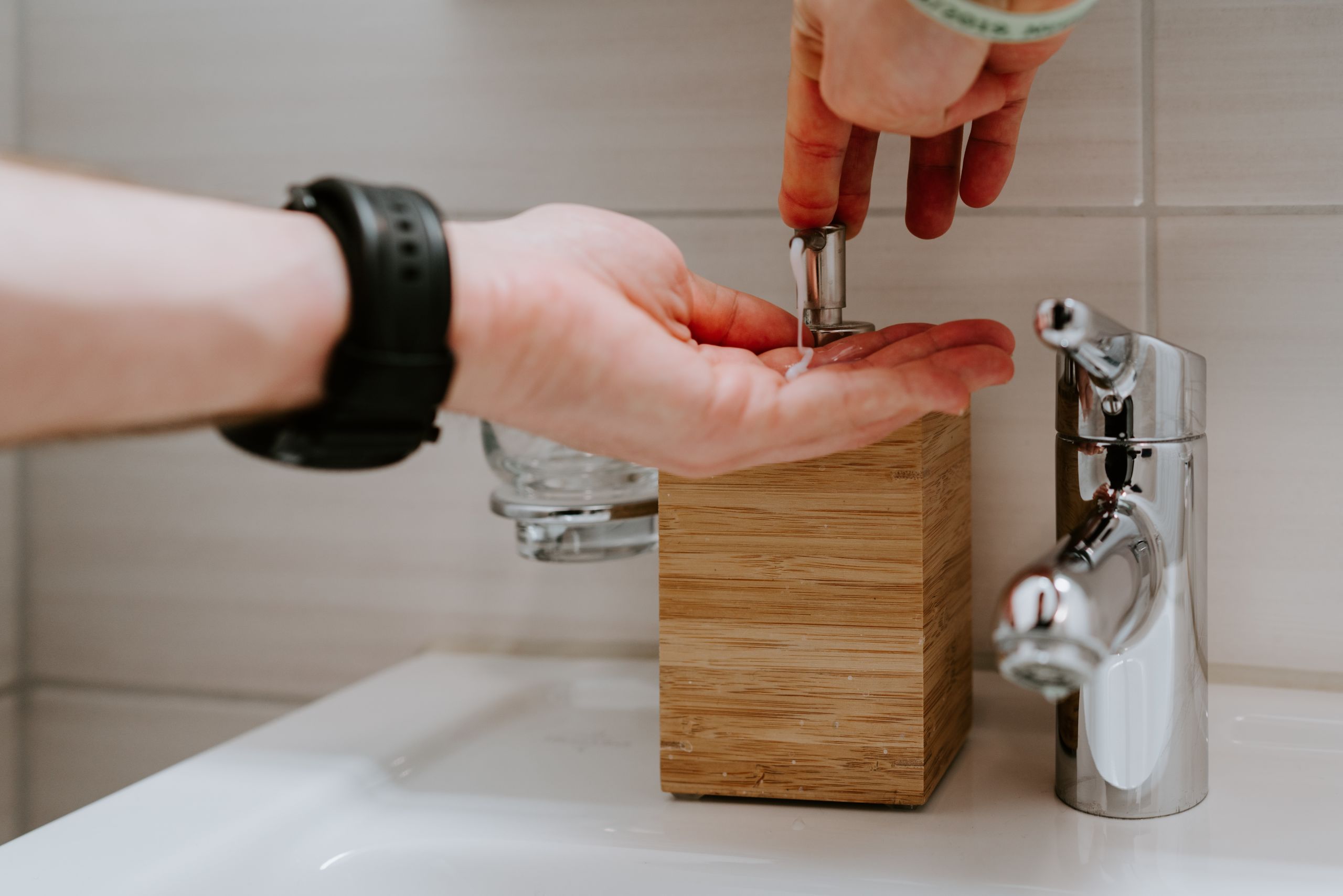



Was this webpage helpful? Let us know by completing our short feedback survey:

